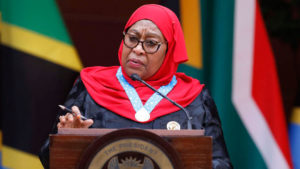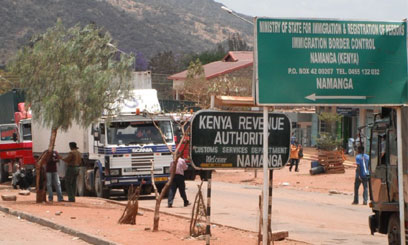The 2025 general elections in Tanzania have drawn significant attention across East Africa, with observers closely monitoring their potential impact on the region’s economic and mobility dynamics. For Kenya, which shares extensive trade, tourism, and infrastructure links with its southern neighbor, the political developments in Tanzania carry both short-term and long-term implications.
Overview of Tanzania’s 2025 elections
On October 29, 2025, Tanzanians went to the polls to elect the president, members of parliament, and local representatives. Early reports indicated a strong showing by the ruling Chama Cha Mapinduzi (CCM) party, led by President Samia Suluhu Hassan, who was widely expected to retain power.
However, several international and regional observers noted a tense electoral atmosphere marked by limited opposition participation, political detentions, and restricted media access. Reports of internet outages, protests in Dar es Salaam, and curfews following the announcement of preliminary results highlighted growing concerns about democratic freedoms and political stability.
Despite the unrest, Tanzanian authorities have maintained that the elections were peaceful and transparent, emphasizing national unity and continuity in governance.

Impact on Kenya Tanzania trade relations
1. Trade corridor stability
Kenya depends on Tanzanian transit routes, including the Dar es Salaam port, for a portion of its exports and imports destined for Southern Africa. Any instability or movement restrictions in Tanzania could temporarily disrupt logistics and supply chains. Truck drivers and freight companies operating along the Namanga and Lunga Lunga borders are especially sensitive to political disruptions that may slow customs clearance.
2. Investor confidence and policy continuity
Political uncertainty often influences investor sentiment. Kenyan businesses with operations in Tanzania — particularly in manufacturing, retail, and transport may adopt a cautious stance until post-election stability is confirmed. Analysts at Chatham House note that the erosion of political openness could impact economic potential, potentially affecting bilateral investments.
3. Regional integration under the EAC
The East African Community (EAC) thrives on open borders and harmonized policies. Tanzania’s election outcomes could shape its engagement with regional trade commitments, especially if domestic priorities shift toward protectionism. Kenya, as a major advocate for deeper integration, will likely push for continued dialogue to maintain regional trade balance.
Money Market Funds Explained: A Beginner’s Guide (Kenya Edition)
Effects on travel and cross-border mobility
1. Business and tourism travel
Kenyan travellers visiting Tanzania for business or tourism may face heightened security checks, curfews, or temporary restrictions, depending on local conditions. Tour operators in both countries, who rely on shared safari circuits, could experience short-term booking disruptions if travel advisories persist.
2. Border efficiency and infrastructure
Improved infrastructure projects such as the Kenya–Tanzania coastal roads and enhanced aviation cooperation between Kenya Airways and Air Tanzania remain positive long term enablers of mobility. However, short term administrative slowdowns during post-election transitions could affect border efficiency.
Looking ahead: Cooperation amid uncertainty
While the Tanzanian elections introduce a degree of uncertainty, Kenya and Tanzania have a strong foundation of trade and people-to-people connections. Both governments have committed to resolving non tariff barriers and strengthening bilateral agreements to enhance the flow of goods and services.
For Kenyan exporters, investors, and travelers, the key takeaway is vigilance and adaptability. Monitoring regulatory changes, diversifying trade routes, and maintaining open communication with trade bodies and diplomatic missions will be crucial in navigating the evolving landscape.
As the political dust settles, sustained dialogue and regional cooperation will determine whether the elections mark a temporary pause or a lasting shift in East Africa’s integration journey.
Kenya Inflation 2025: What Steady Prices Mean for Your Savings and Best Investment Options

















